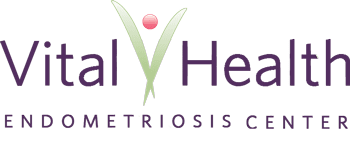 At the Vital Health Endometriosis Center, we offer expert guidance and counseling in diet and nutrition. All treatment plans are tailored to meet the specific needs of patients with pelvic pain as well as other health conditions. We see women, men, and children. Having endometriosis is not a prerequisite to see Vital Health.
At the Vital Health Endometriosis Center, we offer expert guidance and counseling in diet and nutrition. All treatment plans are tailored to meet the specific needs of patients with pelvic pain as well as other health conditions. We see women, men, and children. Having endometriosis is not a prerequisite to see Vital Health.
Our team looks for the underlying cause of disease versus only treating the symptoms. In the first hour and a half appointment, we spend time with a patient, listening to their history and looking at the interactions among genetic, environmental, and lifestyle factors that can influence long-term health and lead to complex, chronic disease. We look to support the unique expression of health and vitality for each individual. When necessary, we suggest additional labs to help determine who they are as an individual and what factors are influencing their health. Examples of labs we may recommend include stool studies, genetic testing, blood tests, heavy metal, and other toxic exposure tests, organic acid testing, adrenal stress tests, hormone testing, and testing to assess nutrient status in the body. In addition to labs, each patient’s history is critical to understanding how they got to where they are now, and what may need to be done to help them change their path towards optimal health. We will ask you to fill out a comprehensive questionnaire prior to your appointment to help us learn a little more about you and your health. A patient’s history can provide information on lifestyle such as stress, exercise, exposure to environmental toxins, sleep patterns, and what food they are putting into their bodies. Often, just by listening to the patient’s story, a great understanding of how to begin the path of healing can be obtained. Testing is often used to verify and clarify this information.

